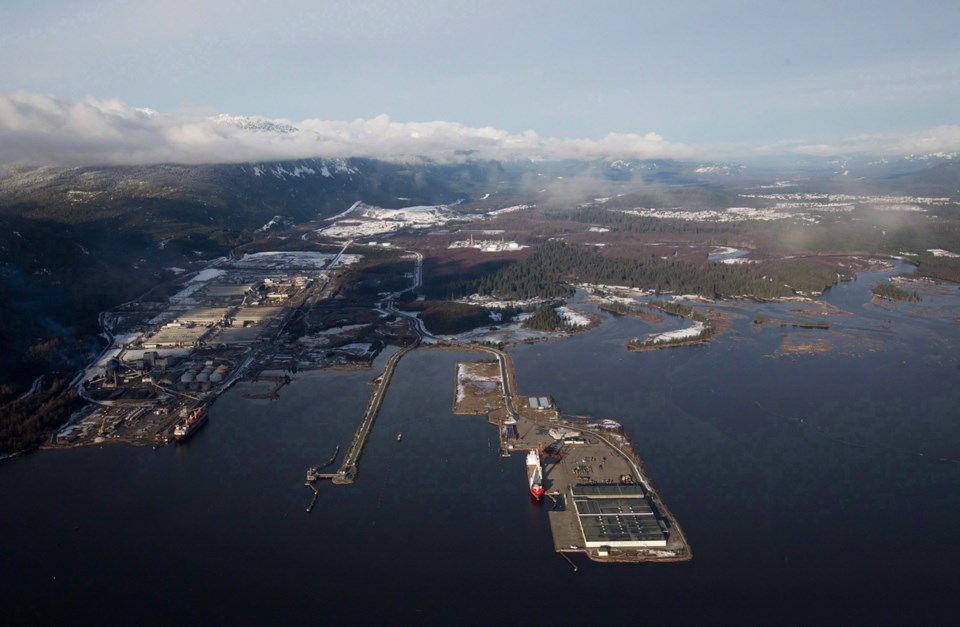FORT ST. JAMES — A group of First Nations with territory covering a quarter of the route for the proposed Northern Gateway oil pipeline met with federal representatives Friday to officially reject the project.
Officials with the Canadian Environmental Assessment Agency, the National Energy Board and the Department of Fisheries and Oceans met with the four clans of the Yinka Dene in Fort St. James, and listened as dozens of elders, hereditary and elected chiefs said “No.”
“We do not, we will not, allow this pipeline,” Peter Erickson, a hereditary chief of the Nak’azdli First Nation, told the six federal bureaucrats.
“We’re going to send the message today to the federal government and to the company itself: their pipeline is dead. Under no circumstances will that proposal be allowed.
“Their pipeline is now a pipe dream.”
The $6-billion, nearly 1,200-kilometre pipeline would deliver 525,000 barrels of petroleum a day from Edmonton to a tanker terminal in Kitimat, on the north coast.
During Friday’s often emotional meeting, Karen Ogan, chief of the Wet’suwet’en, touched on the country’s checkered past with First Nations and its role in the dispute.
“Some people may come from an anger perspective because we’ve been bulldozed, we’ve been run over all through history, through colonization and today we want our voice to be heard,” Ogan told the six bureaucrats during the day-long meeting.
The bands said the project, proposed by Enbridge Inc., is now banned from Yinka Dene territories, under their traditional laws.
Members young and old of the Nadleh Whut’en, Nak’azdli, Saik’uz, Takla Lake, Tl’azt’en and Wet’suwet’en communities were unanimous. They said the decision by the four clans marks the end of negotiations.
The pipeline project faces a major hurdle in getting First Nations on board but behind the scenes negotiators have continued talking with many groups. The company has also signed several benefits agreements with First Nations, though few of them admit publicly to the deals.
The Yinka Dene has spearheaded a petition against the pipeline that has been signed by 160 First Nations groups in B.C. — most not located near the proposed pipeline route.
Last month, the company announced that it asked former Conservative minister of Indian affairs Jim Prentice to try to mediate deals with First Nations opposed to the project.
The federal government says Canada is losing billions of dollars a year because western Canadian oil is not reaching markets overseas. Enbridge has said Northern Gateway is expected to grow the Canadian GDP by more than $300 billion over 30 years.
But the pipeline became a lightning rod in the debate over global climate change and raised alarms over the possibility of an oil spill on land or off the coast of B.C.
A federal review panel recommended approval of the pipeline with 209 conditions. A final decision is expected from the federal government in June, but several B.C. First Nations have filed appeals with the Federal Court seeking to overturn the panel recommendation.



